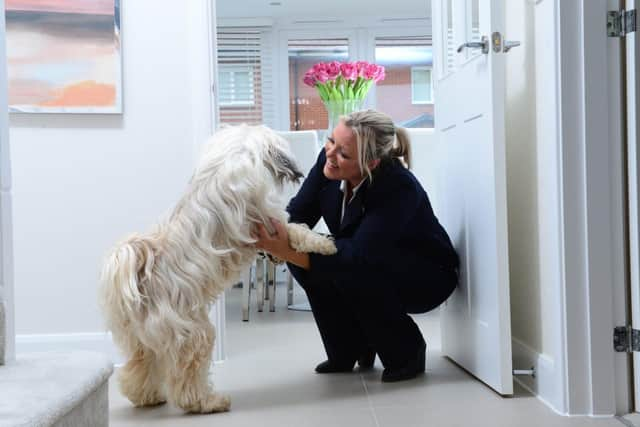Top tips for a stress-free house move for pets in Nottinghamshire
and live on Freeview channel 276
Rachael Harrison, sales director at Barratt and David Wilson Homes, said: “Moving to a new home can be a worrying experience for pets, who often get overlooked during this busy time.
“We want our customers’ moves to be as stress-free as possible, and that includes keeping their pets happy. That’s why we’ve teamed up with the RSPCA to ensure a happy move all round.”
Advertisement
Advertisement
The RSPCA, which has a branch in Nottinghamshire, is encouraging buyers to plan in advance and minimise the impact on pets.


Dr Jane Tyson, RSPCA companion animals expert, said: “Moving house can be a stressful time for everyone and that can include pets as they get used to settling into their new home.
“If you have a pet and are moving house, we strongly suggest you plan ahead and take the time to think about the best way to move your pet, in a way which will minimise as much stress as possible.”
Here are the RSPCA’s top five tips for a happy move:
- Plan the Journey – Make sure your pets are fit to travel and if in any doubt, contact your vet. If you own an animal that is pregnant, seek advice from a vet before transporting her. Plan your route to minimise journey time and maintain suitable comfort and environmental conditions. Never leave an animal unattended in a vehicle;
- Reduce Stressful Situations – Try to keep your pet away from all the commotion of packing, unpacking, moving and cleaning to help reduce their stress;
- Ask a Vet about Calming Products – Speak to your vet about artificial pheromone products, for example Feliway for cats and Adaptil for dogs – these may help to make your pet feel more secure and settled in their new home;’
- Update Your Details – Update your contact details with your pet insurers, vets, microchip and any ID tags. You may need to register with a new vet, depending on how far you are moving;
- Keep a Routine – When in the new house, try to keep to the same routine with your pets as you had in your previous home.
Dr Tyson said: “Cats in particular may find a house move stressful as they can become attached to where they live. At your new house, keep your cat indoors for a minimum of two to three weeks before letting them out.
Advertisement
Advertisement
“This gives them time to get to become familiar with the new house. When you first let them out make sure it’s before their meal time – if they are hungry you should be able to call them back for their favourite food. Let them go out for short periods to start with and build this up, as this will allow your cat to become more confident.
“With dogs, as it is a legal requirement to have your dog microchipped, it is so important to make sure you update your address details on the microchipping database. On moving day, pack all your dog’s things - including food and water bowls, food, bed and toys - into one clearly-labelled box so that you can find it easily when you arrive at your new home. Getting out things that they are familiar with will help minimise their stress.”
For those who have not yet found their ideal home, there are a number of properties available to buy with Barratt Homes in Nottinghamshire and David Wilson Homes in Nottinghamshire.
For further information, visit barratthomes.co.uk or dwh.co.uk